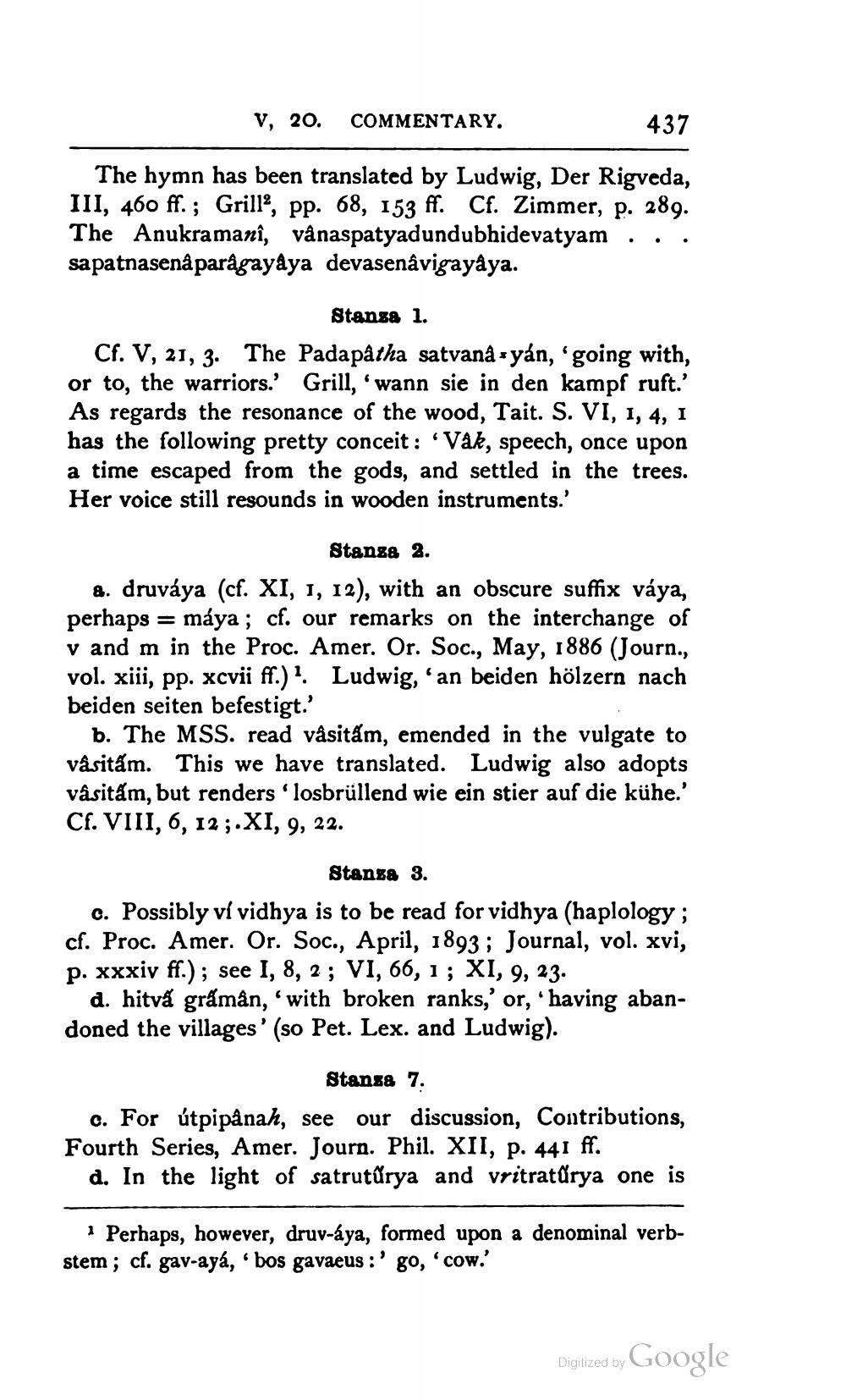________________
V, 20.
COMMENTARY.
The hymn has been translated by Ludwig, Der Rigveda, III, 460 ff.; Grill2, pp. 68, 153 ff. Cf. Zimmer, p. 289. The Anukramanî, vânaspatyadundubhidevatyam sapatnasenâ parâgayâya devasenâvigayâya.
437
.
Stanza 1.
Cf. V, 21, 3. The Padapatha satvanâ-yán, 'going with,
or to, the warriors.' Grill, 'wann sie in den kampf ruft.' As regards the resonance of the wood, Tait. S. VI, 1, 4, 1 has the following pretty conceit: 'Vâk, speech, once upon a time escaped from the gods, and settled in the trees. Her voice still resounds in wooden instruments.'
Stanza 2.
=
a. druváya (cf. XI, 1, 12), with an obscure suffix váya, perhaps máya; cf. our remarks on the interchange of v and m in the Proc. Amer. Or. Soc., May, 1886 (Journ., vol. xiii, pp. xcvii ff.). Ludwig, 'an beiden hölzern nach beiden seiten befestigt.'
b. The MSS. read vâsitám, emended in the vulgate to vâsitám. This we have translated. Ludwig also adopts vâsitam, but renders 'losbrüllend wie ein stier auf die kühe.' Cf. VIII, 6, 12;.XI, 9, 22.
Stanza 3.
c. Possibly ví vidhya is to be read for vidhya (haplology; cf. Proc. Amer. Or. Soc., April, 1893; Journal, vol. xvi, p. xxxiv ff.); see I, 8, 2; VI, 66, 1; XI, 9, 23.
d. hitvấ grấmân, 'with broken ranks,' or, 'having abandoned the villages' (so Pet. Lex. and Ludwig).
Stanza 7.
c. For útpipânah, see our discussion, Contributions, Fourth Series, Amer. Journ. Phil. XII, p. 441 ff.
d. In the light of satruturya and vritratűrya one is
Digitized by
1 Perhaps, however, druv-áya, formed upon a denominal verbstem; cf. gav-ayá, 'bos gavaeus:' go, 'cow.'
Google




